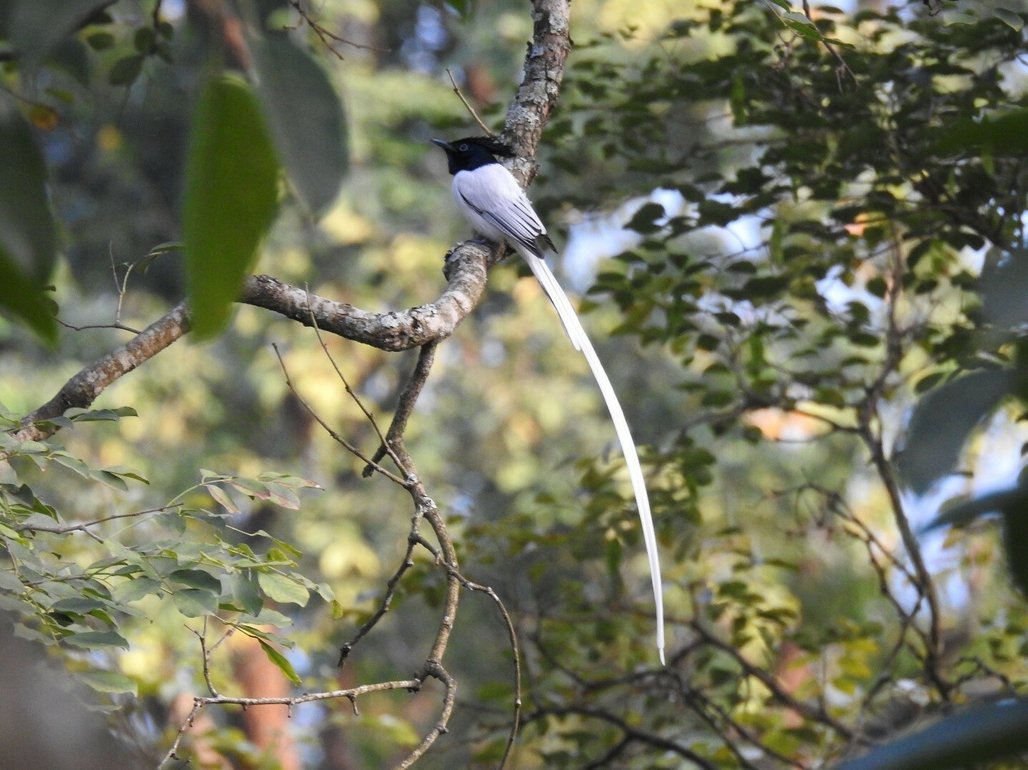Urbanization is one of the most drastic forms of land-use change, and its negative consequences on biodiversity have been studied extensively in temperate countries such as Germany. However, less research has been conducted in tropical regions from the Global South, where most of the ongoing and future urbanization hotspots are located, and little is known about its effects on agricultural biodiversity and associated ecosystems. A research team from the University of Göttingen and the University of Hohenheim, in collaboration with the University of Agricultural Sciences of Bangalore in India, investigated the effects of urbanization on farmland bird communities in and around Bangalore, a city of over 10 million inhabitants in South India. They found that urbanization homogenizes farmland bird communities, filtering out species with certain functional traits, such as insect-eating birds, which are important for pest control. The results were published in Global Change Biology.
A local ornithological expert conducted regular bird surveys over one year and recorded 126 bird species. Using remote sensing techniques, satellite pictures were processed to produce a map of different land-uses, from which urbanization intensity was measured based on the proportion of sealed surfaces and buildings in the landscape. The researchers analyzed how farmland bird communities changed along a gradient of urbanization using newly developed statistical analyses.
“We found that urban bird communities were impoverished subsets of rural communities, both in terms of species composition and the ecological functions they provide,” says first author Gabriel Marcacci, PhD student in the Functional Agrobiodiversity group at the University of Göttingen. “Birds perform important roles in the environment, for instance controlling pests by eating insects, scavenging and removing carrion, or eating fruits and dispersing the seeds. But only bird species that are well adapted to urban environments such as pigeons or crows can thrive.”
“The homogenization – resulting from losing diversity through the exclusion of certain groups – of farmland bird communities may disrupt important ecosystem functions and services in urban agroecosystems such as pest removal by insect-eating birds,” explains Professor Catrin Westphal, head of the Functional Agrobiodiversity group. Urban communities were found to be more sensitive to species loss, endangering ecosystem resilience.
“Our study underscores urbanization as a serious threat to biological communities and ecosystem functioning that may affect food production systems,“ adds Professor Ingo Graß, head of the Department of Ecology of Tropical Agricultural Systems at the University of Hohenheim. Professor Teja Tscharntke concludes, “This concern is especially relevant for countries from the Global South where urban agriculture and ecosystem services play an increasingly important role for food security.”
Original publication: Marcacci, G, et al “Taxonomic and functional homogenization of farmland birds along an urbanization gradient in a tropical megacity” 2021, Global Change Biology. https://doi.org/10.1111/gcb.15755
Contact:
Gabriel Marcacci
University of Göttingen
Faculty of Agricultural Sciences
Functional Agrobiodiversity
Grisebachstraße 6, 37077 Göttingen
Tel: +41 (0) 79 650 70 33
Email: gabriel.marcacci(at)uni-goettingen.de
www.uni-goettingen.de/en/617429.html
Professor Catrin Westphal
University of Göttingen
Faculty of Agricultural Sciences
Functional Agrobiodiversity
Grisebachstraße 6, 37077 Göttingen
Email: cwestph@gwdg.de
www.uni-goettingen.de/en/601841.html
Professor Ingo Graß
University of Hohenheim
Department of Ecology of Tropical Agricultural Systems
Garbenstrasse 13, 70599 Stuttgart
Email: ingo.grass(at)uni-hohenheim.de


